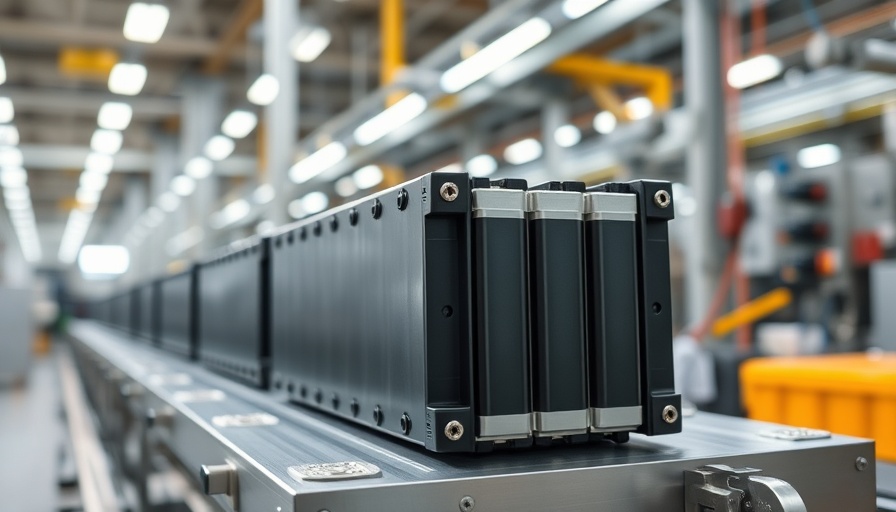
Understanding the Impact of New Tariffs on the Battery Industry
In a dramatic shift, the recent announcement of tariffs on imported goods, particularly affecting the battery industry, has ignited a wave of uncertainty across markets. As the Biden administration pauses some tariffs for a short duration, businesses and consumers alike are bracing for what could be significant economic upheavals, especially in the realm of clean energy technology.
The Global Supply Chain Under Pressure
China currently produces over 75% of the world’s lithium-ion batteries, a statistic highlighting the critical nature of these import tariffs. With Donald Trump’s proposed tariffs escalating to nearly 132% for batteries imported from China, US manufacturers are poised to face rising costs, which inevitably translate to increased prices for consumers. In practical terms, this means that purchasing electric vehicles (EVs), smartphones, laptops, and various electronic devices could soon become a significantly more expensive endeavor.
The Ripple Effects on Technological Advancements
As professionals in technology and finance understand well, every increased cost has the potential to stymie innovation and growth within industries that rely heavily on batteries. This scenario raises questions about the future of technologies that aim to promote sustainability and a greener economy. Will these tariffs lead startups and established businesses to rethink their strategies, or will they fade into a challenging economic landscape of unpredictability?
What This Means for Consumers
For the mid-to-senior professionals in sectors like healthcare and tech, these tariff changes represent not only an economic shift but also a tangible effect on daily life. Higher prices on essential tech products could squeeze budgets and force prioritization in investments, as many families may reconsider purchases of high-ticket items like electric vehicles. Awareness of these issues is paramount for leaders in the industry who advocate for sustainable solutions.
Actions that Professionals Can Take
Understanding the emerging trends fueled by these tariffs is essential. Staying informed about technology updates and engaging in strategic planning can empower professionals to adapt their business models effectively. It is also critical to advocate for economically viable solutions that still emphasize sustainability in tech innovation.
Future Predictions for the Battery Market
Looking ahead, the disruptive nature of these tariffs could compel a closer examination of local supply chains for battery production. Businesses may begin to explore options that mitigate reliance on foreign imports to maintain cost structures. In a climate that's increasingly valuing sustainability, innovations might arise from these challenges, creating opportunities for local manufacturers and encouraging research into alternative technologies.
In a rapidly changing economic environment, the key takeaway is that adaptation, resilience, and a commitment to innovation will define success in the face of increased tariffs. As these developments unfold, staying engaged and informed will be vital for professionals across industries.
If you are looking to stay ahead of the upcoming trends and navigate the evolving technological landscape, consider attending workshops and seminars that focus on actionable insights within your specific industry. Embracing change, rather than resisting it, can help prepare you for the disruptions ahead.
 Add Row
Add Row  Add
Add 



 Add Row
Add Row 


 Add
Add 

Write A Comment